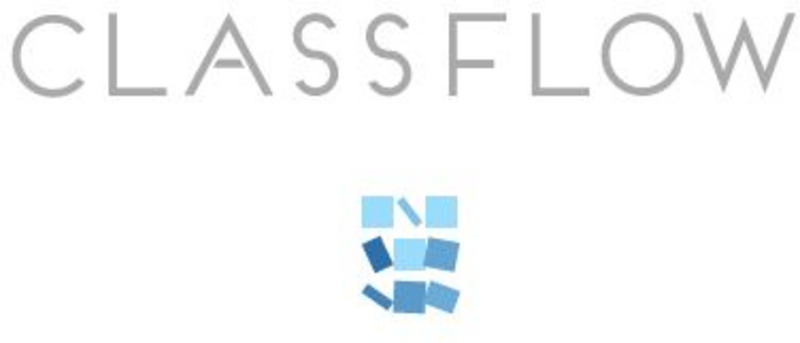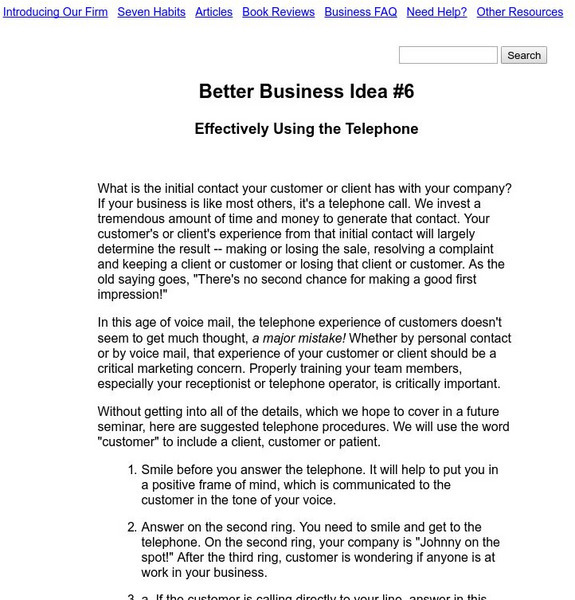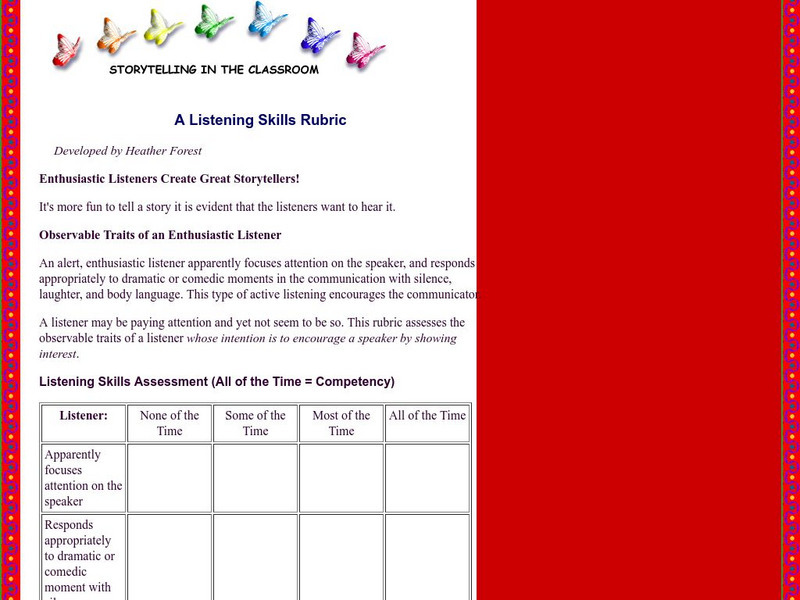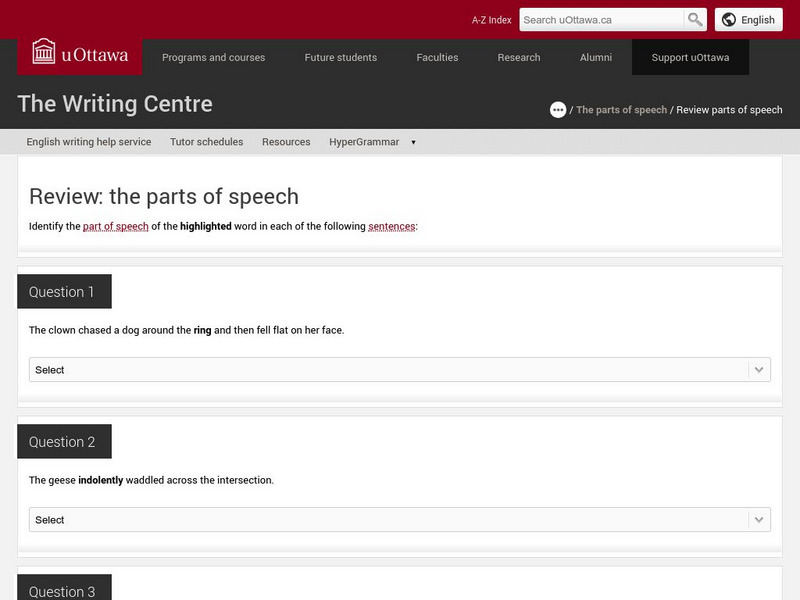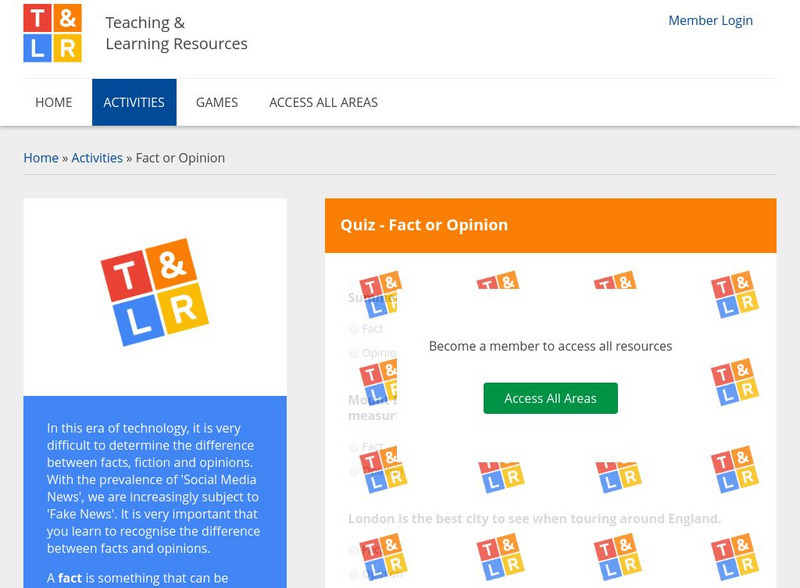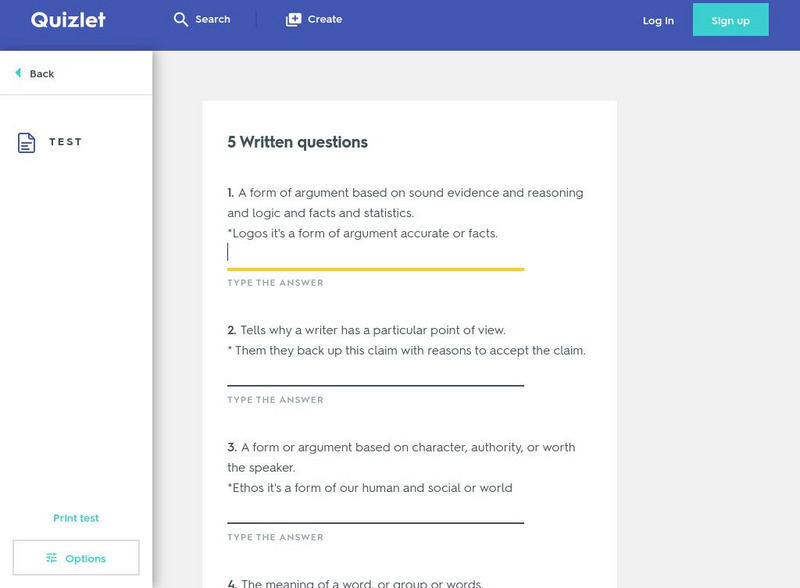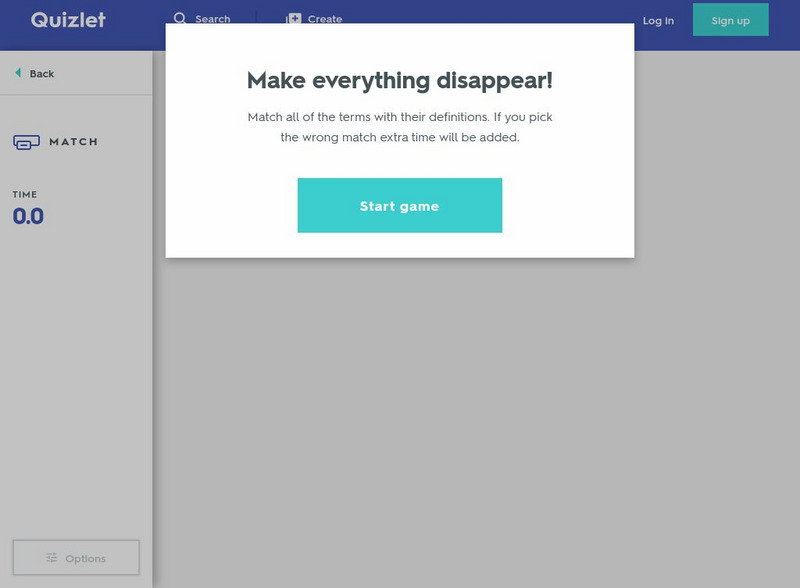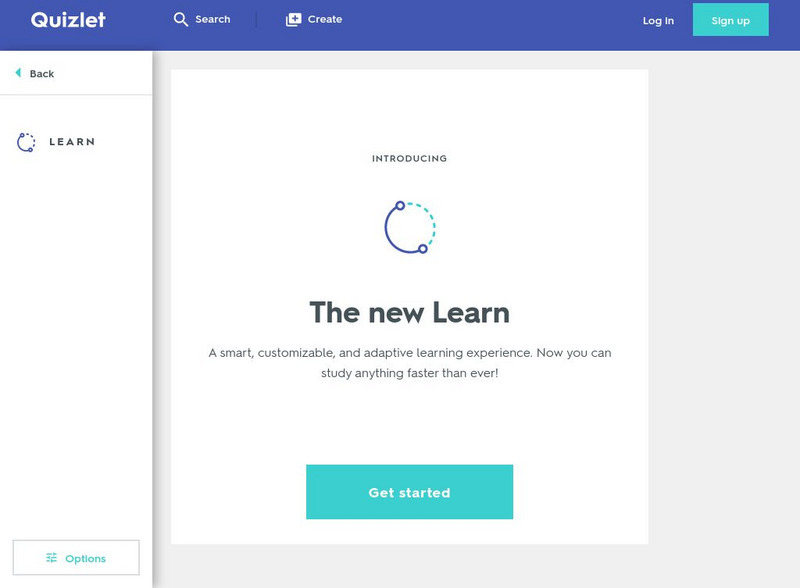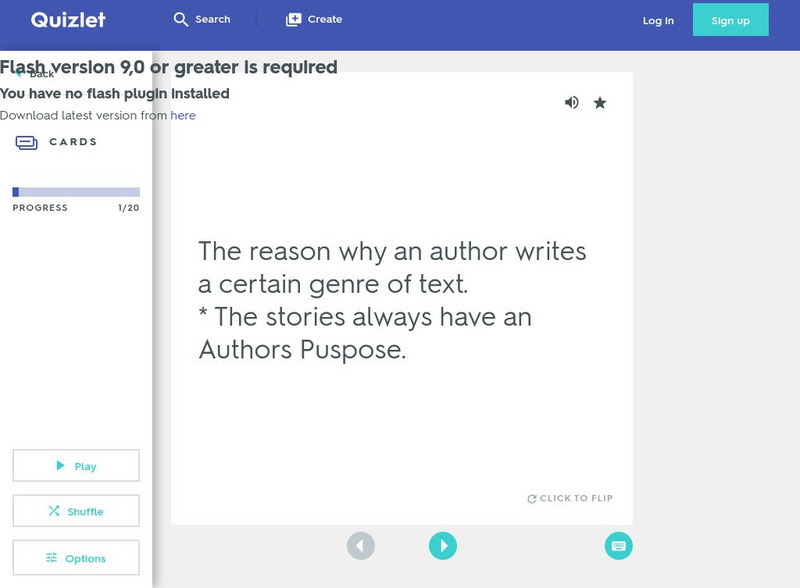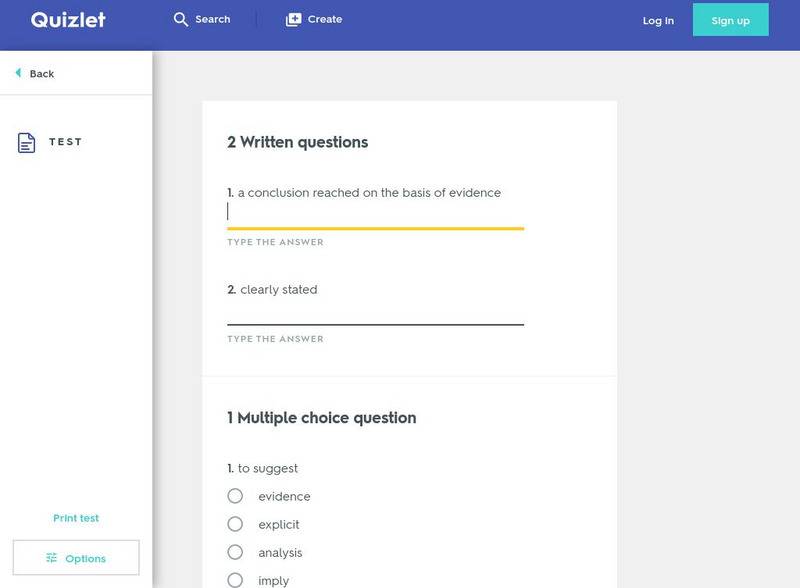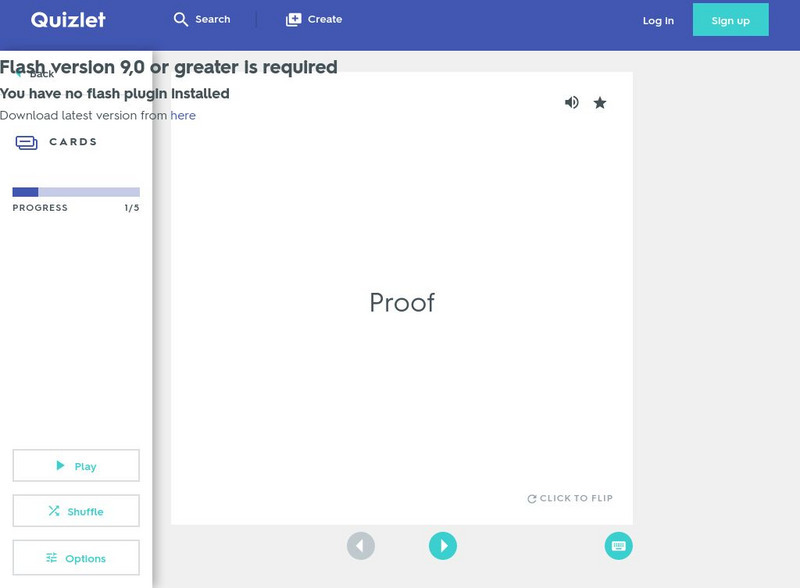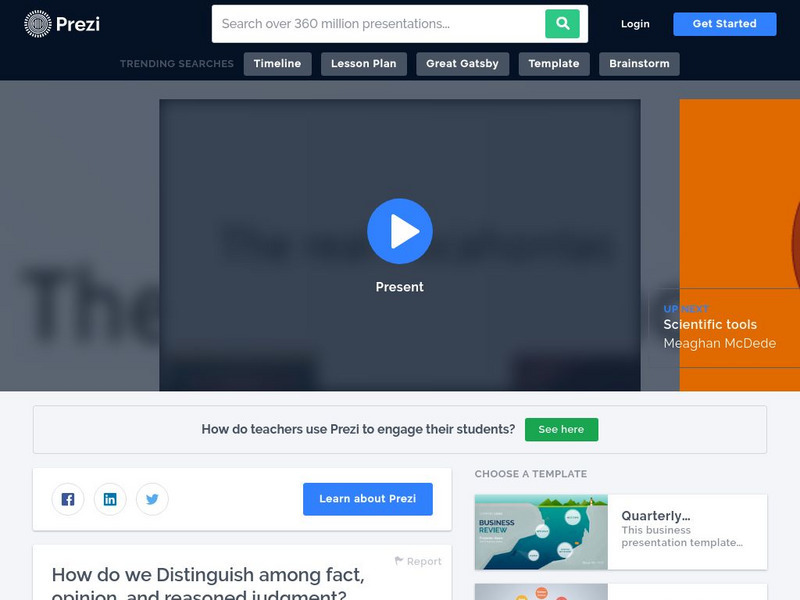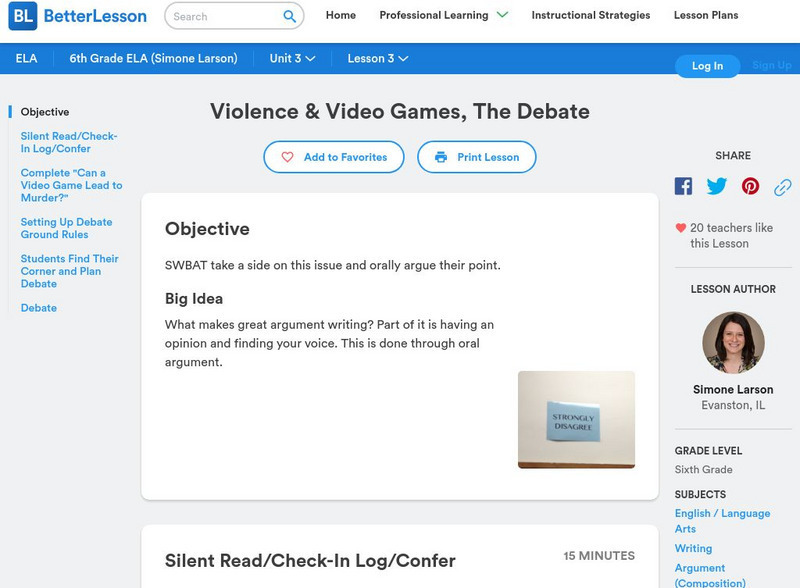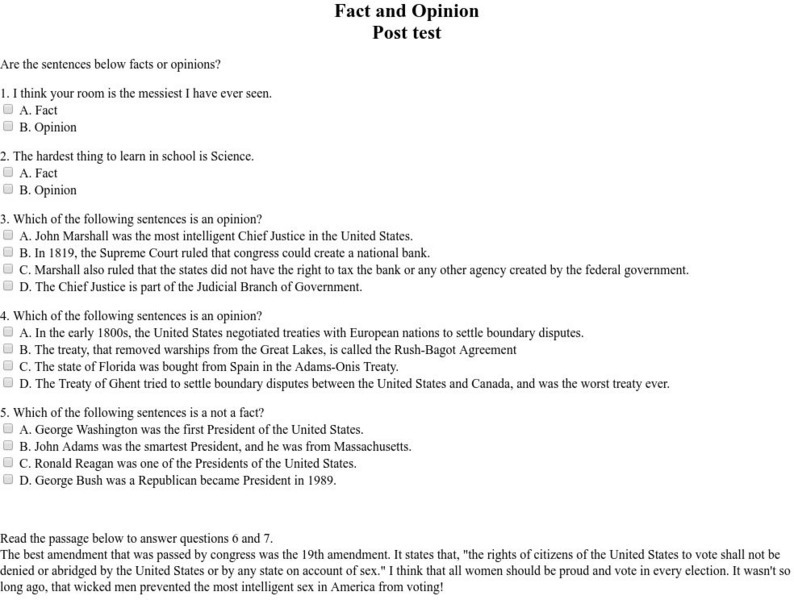ClassFlow
Class Flow: Fact or Opinion
[Free Registration/Login Required] Students will be introduced to the difference between facts and opinions. They will practice determining which statements are facts and which are opinions. Activities include sorting and classifying...
ClassFlow
Class Flow: Grammar Pronouns 2
[Free Registration/Login Required] This flipchart discusses and gives examples of many types of pronouns, showing their usage in context. It includes activities for large or small groups and assessment pages.
Other
Marketing terms.com: Moderator
Defines the term and discusses some basic job duties. Also contains links to additional information on the bottom of the page.
Other
Effectively Using the Telephone
This resource contains an article about using the telephone to its maximum potential. It gives basic advice on improving your communication over the phone.
ClassFlow
Class Flow: What Is an Inference?
[Free Registration/Login Required] This flipchart defines what an inference is and helps students understand the concept using Activote to review and practice.
Other
Prezi: Explicit vs. Implicit
Slideshow explains the difference between explicit and implicit meaning in texts and visuals. Includes good examples and practice questions.
Other
Story Arts: Listening Skills Table for Storytelling
Two rubrics to assess a listener's attention during a storytelling session. The first is used to record frequency of audience reactions. The second is used to access the listener's level of comprehension.
University of Ottawa (Canada)
Univeristy of Ottawa: Parts of Speech Review Exercise
How well can you identify the 8 basic parts of speech? This site can help you find out.
Other
Thinking Skills in Education: Comparing Four Frameworks
An interesting article that discusses various types of thinking skills and why they are important in education.
Other
Teaching and Learning Resources for Ks2 (Ages 7 12):literacy: Fact or Opinion?
This is a 10 question, self-scoring quiz on separating fact from opinion. Students read a sentence and select "fact" or "opinion" from the drop-down menu.
Other
Dr. Wheeler's Website: Rhetoric
A definition of Rhetoric along with links to additional information on logos, ethos, and pathos. Common Rhetorical Mistakes and an explanation of how rhetoric works are also provided.
BBC
Bbc Bitesize Revision: Observation
As part of a revision and writing section of BBC Bitesize, this site goes over several tips of general advice to keep in mind when writing about observations (as part of descriptive writing).
Other
Cuesta College: Interpreting What You Read
This site from Cuesta College provides both in-depth definitions of fact and opinion, and several clear examples of each.
Quizlet
Quizlet: Claim & Support: Test
This interactive assessment features 10 match and 10 multiple choice questions over 20 vocabulary words relating to argumentative writing claims and support.
Quizlet
Quizlet: Claim & Support: Match
In this interactive game, students match each vocabulary word relating to argumentative writing claims and support with its definition.
Quizlet
Quizlet: Claim & Support: Learn
In this interactive activity, students type in the correct vocabulary words relating to argumentative writing claims and support.
Quizlet
Quizlet: Claim & Support: Flashcards
This set of interactive flashcards focuses on 20 vocabulary words relating to argumentative writing claims and support.
Quizlet
Quizlet: Claim and Support Vocabulary: Quiz
This interactive assessment features 7 matching, 7 multiple-choice, and 6 true/false questions over 20 vocabulary words relating to argumentative writing claims and support.
Quizlet
Quizlet: 8th Grade Evidence/inference Test
Reading strategy terms are included on this vocabulary test. This test assesses the following words: analysis, evidence, explicit, imply, and inferences. Five multiple choice questions are provided on this assessment.
Quizlet
Quizlet: Flashcards 8th Grade Evidence/inference
This set of interactive flashcards focuses on terms having to do with evidence and inference-related definitions. These terms include the following: evidence, analysis, inferences, explicit, and imply.
Other
Prezi: How Do We Distinguish Among Fact, Opinion, and Reasoned Judgment?
Analysis of The Real Pocahontas shows how to distinguish between fact, opinion, and reasoned judgment. Provides a practice activity.
Other
Middle Web: ccss.ela literacy.sl.6.3: Argument/claim [Pdf]
A graphic organizer for laying out a speaker's argument or claim and the reasons or evidence given, both supported and unsupported.
Better Lesson
Better Lesson: Violence & Video Games, the Debate
In this lesson, 6th graders read and discuss an article about video games and violence, then participate in a debate. They are divided into groups and each group prepares an argument and their evidence, then one person from each group...
Sam Houston State University
Sam Houston State University: Post Test Fact and Opinion
Test your knowledge of fact and opinion by answering these ten questions. Correct answers are provided.



